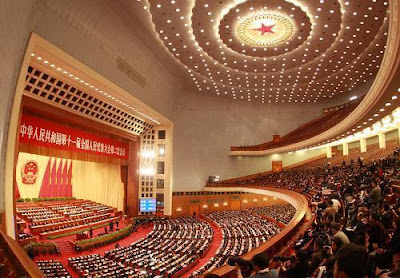President Lee Myung-bak announced the establishment of a "New Asia Initiative" in Jakarta, Indonesia Mar. 8. He set forth the program after he presided over a conference of Korean mission chiefs in the Asian region that morning.
Under the initiative, Korea will play a central role in representing the interest of Asian nations in the international arena. The program also envisages Korea concluding free trade agreements with all Asian countries and establishing a green growth belt in the Asian-Pacific region. If realized, his diplomatic initiative will boost Korea's status and role also in the Southeast Asian and South Pacific region.
President Lee laid stress on diplomacy of attaching importance to Asian nations based on Korea's diplomacy toward four major neighboring countries, the United States, China, Japan and Russia. Korean ambassadors stationed in Indonesia, Australia, China, India, Japan and other countries attended the conference.
The President said, "Last year, we focused our diplomatic efforts in four major countries that have the most influence [in this region]. As a result, our diplomatic relations with the United States and Japan were restored. Our relations with China and Russia were upgraded to a higher level."
Wrapping up his latest tour of New Zealand, Australia and Indonesia, he said, "We have achieved more results than expected in our relations with Australia, with which Korea will seek substantial economic cooperation and cooperate on the supply of resources, and Indonesia, with whose relations are very important in green growth in the 21st century."
He said that his latest tour of "Australia and Indonesia will contribute largely to establishing trilateral relations between Korea, Australia and Indonesia in an organic way, boosting Korea's status, and achieving practical results." It is important and urgent to improve relations with neighboring Asian countries this year, as it is predicted that a new Asian era is approaching, he added.
He seems to be determined to increase his diplomatic efforts in the international arena, given his wrap-up of diplomatic efforts vis-a-vis four major powers during the first year of his presidency and Korea's assumption of co-chairmanship of the next G20 meeting aimed at overcoming the worldwide economic crisis. He has also taken the initiative in presenting his vision of "low carbon, green growth" as a new growth engine.
Meanwhile, in a dinner with Korean reporters on the evening of Mar. 7, Lee said, "I'm thinking of establishing new relations with Asian nations by the end of the first half of this year, considering that we've already conducted our first round of diplomacy toward the four major countries and establishing special diplomatic relations between Korea, China and Japan."
(http://www.korea.net/)





 Foreign Students Celebrating Holi at Jhelum Lawn
Foreign Students Celebrating Holi at Jhelum Lawn En route to Jhelum Lawn
En route to Jhelum Lawn






